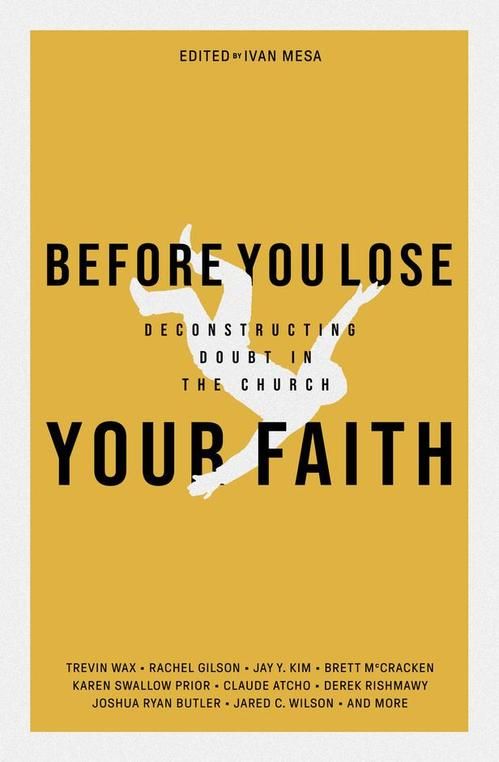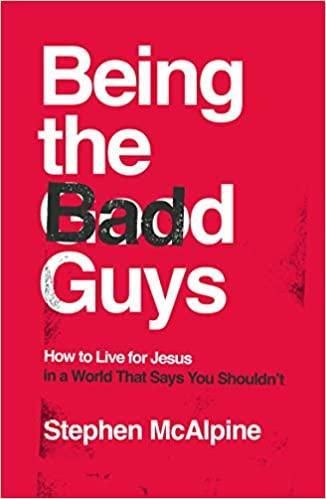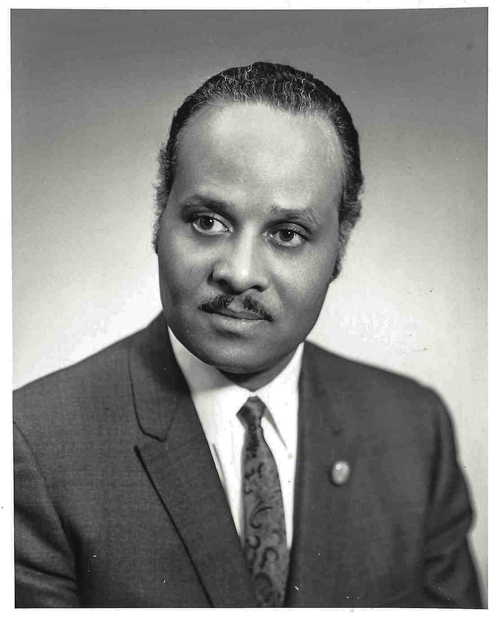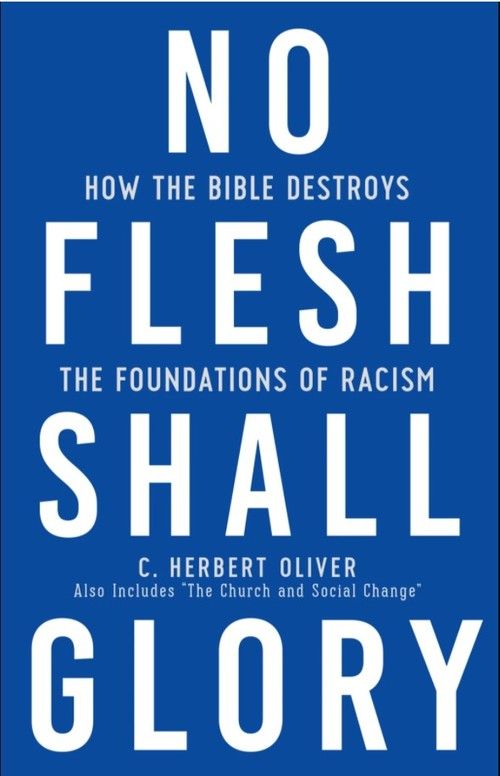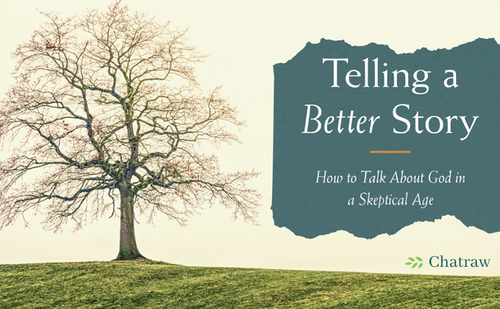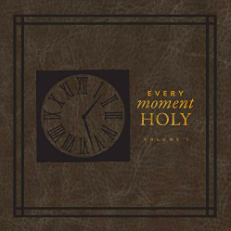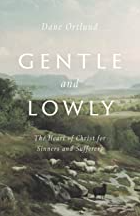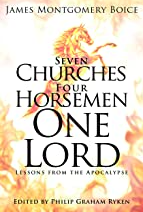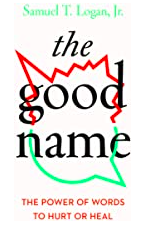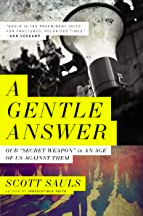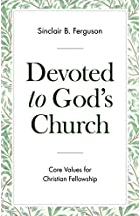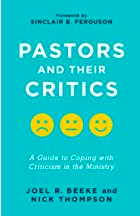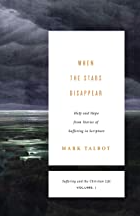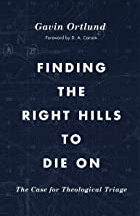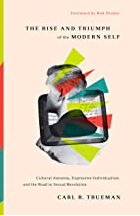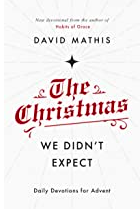
Pastor Dave's
Book Recommendations
& Reviews
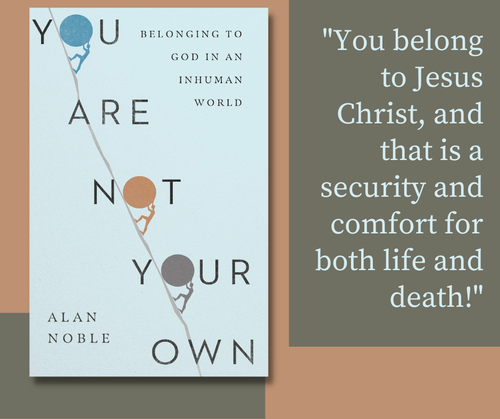
You Are Not Your Own: Belonging to God in an Inhuman World
by Alan Noble
Generally I'm a pretty fast reader, but sometimes I have to slog through a book. That's not always the author's fault. In some cases it is either my struggling with a subject that is out of my normal interests, or because I am wrestling with the actual content of what is being communicated. Currently, the latter applies to a book I am reading by Alan Noble, Associate Professor of English Literature at Oklahoma Baptist University. He actually attends a PCA church and I have found him (in his previous book, Disruptive Witness: Speaking Truth in a Distracted Age (IVP, 2018)), to be an insightful writer, with just a hint of the dry humor that I really enjoy. His newest book is called You Are Not Your Own: Belonging to God in An Inhuman World (IVP, 2022). The premise of the book is in its title. He argues that our culture of autonomy and expressive individualism is at its root, anti-human. It's why we have more time-saving technology, leisure opportunities, more information and news at our fingertips, and seemingly limitless options in our lives, and yet we are more depressed, more stressed, and more overwhelmed and overworked than any generation in history! At root, Noble argues, we are not designed to be our own! He bases his title on, and interacts with, the first question of the Heidelberg Catechism: Q. What is your only comfort in life and in death? A. That I am not my own, but belong--body and soul, in life and in death--to my faithful Savior Jesus Christ. He has fully paid for all my sins with his precious blood, and has set me free from the tyranny of the devil. He also watches over me in such a way that not a hair can fall from my head without the will of my Father in heaven: in fact, all things must work together for my salvation. Because I belong to him, Christ, by his Holy Spirit, assures me of eternal life and makes me wholeheartedly willing and ready from now on to live for him.
I am currently finishing ch. 5, 'You Are Not Your Own But Belong to Christ', and I was struck by his discussion of personal identity, something that is widely discussed in our current culture. Here is what he argues:
As you may have heard said, we are to find our identity in Christ, but we need to understand what that means. As Noble warns,
So what is a real understanding of identity in Christ?
I know that was a bit long, but with our culture's constant cries of "be true to yourself", "be authentic", "find your true self", etc, I think these truths are vital to think upon, and to realize how much we too have often bought into our culture's lies and felt the despair, burnout, frustration, and hopelessness of autonomy and self-definition.
As Paul reminds us, "You are God's field, God's building." (1 Cor. 3:9b); "...you are God's temple and that God's Spirit dwells in you" (1 Cor. 3:16); "you are Christ's, and Christ is God's" (1 Cor. 3:23); "you were washed, you were sanctified, you were justified in the name of the Lord Jesus Christ and by the Spirit of our God." (1 Cor. 6:11); "your bodies are members of Christ" (1 Cor. 6:15); and "do you not know that your body is a temple of the Holy Spirit within you, whom you have from God? You are not your own, for you were bought with a price." (1 Cor. 6:19-20).
Beloved, rejoice that you are NOT your own! You belong to Jesus Christ, and that is a security and a comfort for both life and death!
With you thankful to be His treasured possession (Dt. 7:6),
- Pastor Dave
I am currently finishing ch. 5, 'You Are Not Your Own But Belong to Christ', and I was struck by his discussion of personal identity, something that is widely discussed in our current culture. Here is what he argues:
"Our identity before God. If you are not your own but belong to Christ, then the entire modern project of identity formation and expression is a sham. That means a portion of our economy is based on the myth that we need to be someone unique. Expressive individualism is the logic guiding many modern industries, like entertainment, fashion, and social media. These are massive corporations generating billions upon billions of dollars in revenue each year from people who feel an overwhelming burden to be seen so that they feel real and significant--people who have been lied to.
The truth is that you are always your person, created by God with your face, your name, and your consciousness. While being a unique person, you have always existed in relation to others, primarily to God, but also your neighbor, and the created world. There is no version of your self that can be extracted from these relationships and your history and your body. You are inexorably embedded in space and time.
There is no image for you to maintain because you were made in the image of God. There is no identity for you to discover or create because your identity was never actually in question. It felt like it was because we live in liquid modernity, but that feeling isn't reality. And there is no need for you to express your identity to make it more solid or to compete in the ever-growing marketplace of images because your personhood doesn't need affirmation from other humans to make it valid." (pgs. 136-137).
If this sounds academic to you, it's really not. Every time we try to prove ourselves before others, or look to see how many 'likes' we got on a social media post, or feel somehow lessened because we are not up to date on some fashion style or having gotten the newest technological version of some gadget/phone/game, we are striving to define, promote, or sustain an identity.
As you may have heard said, we are to find our identity in Christ, but we need to understand what that means. As Noble warns,
"The danger for Christians who urge others to find their identity in Christ is that most modern people have a secular understanding of identity, one rooted in contemporary anthropology, where identity has more to do with lifestyle and image than personhood. 'Christ' becomes just another, better identity. You're still pouring water into a cup, you just had to find the right cup.
There are a number of serious problems with this advice. For one, what exactly does the Christ-identity look like? Certainly, being a follower of Christ gives you a set of morals and a community. We may go as far as to say that Christianity offers us an entire worldview. But morality, community, and worldview are not identity. They can contribute to our identity, but they are not our identity." (pg. 138).
So what is a real understanding of identity in Christ?
"If you are your own and belong to Christ, then your personhood is a real creation, objectively sustained by God. As a creation of God, you have no obligation to create your self. Your identity is based on God's perfect will, not your own subjective, uncertain will. All your efforts to craft a perfect, marketable image add nothing to your personhood. The reason the opinions of others don't define you isn't because your opinion is the only one that counts, but because you are not reducible to any human efforts of definition. The only being who can fully know you and understand you without reducing you to a stereotype or an idol is God.
This does not mean that you don't have a 'true self'. You do. But it is just not one that you are burdened with creating. We live as our true selves when we stand transparently before God, moment by moment, as Kierkegaard reminds us: The self's task is 'to become itself, which can only be done in relationship to God.' This means knowing that we are spirit as well as body. It means living in light of eternity without the effacement of earthy life. It means knowing that we are a miraculous creation, a pure gift from a loving God. It means that we have limits, we have duties, obligations, and commandments that we must obey. It means we are contingent and dependent upon God. Anytime we imagine ourselves to be autonomous, anytime we, like Cain, strive to be utterly self-sufficient and deny the hand of God in our lives, we are not merely in sin; we are in denial about the way things truly are. In Kierkegaard's view, this denial is fundamentally despair. Our contemporary drive to be authentic can find its fulfillment in the active choice to recognize our belonging to and before God." (pgs. 139-140).
I know that was a bit long, but with our culture's constant cries of "be true to yourself", "be authentic", "find your true self", etc, I think these truths are vital to think upon, and to realize how much we too have often bought into our culture's lies and felt the despair, burnout, frustration, and hopelessness of autonomy and self-definition.
As Paul reminds us, "You are God's field, God's building." (1 Cor. 3:9b); "...you are God's temple and that God's Spirit dwells in you" (1 Cor. 3:16); "you are Christ's, and Christ is God's" (1 Cor. 3:23); "you were washed, you were sanctified, you were justified in the name of the Lord Jesus Christ and by the Spirit of our God." (1 Cor. 6:11); "your bodies are members of Christ" (1 Cor. 6:15); and "do you not know that your body is a temple of the Holy Spirit within you, whom you have from God? You are not your own, for you were bought with a price." (1 Cor. 6:19-20).
Beloved, rejoice that you are NOT your own! You belong to Jesus Christ, and that is a security and a comfort for both life and death!
With you thankful to be His treasured possession (Dt. 7:6),
- Pastor Dave
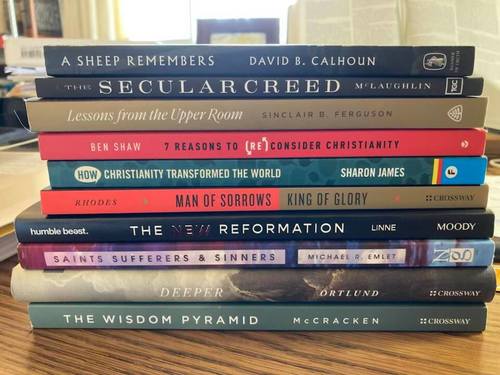
My Favorite Books of 2021
The Wisdom Pyramid: Feeding Your Soul in a Post-Truth World by Brett McCracken (Crossway, 2021). In an age when deep thought and reasoned debate is rare, this is a wonderful, refreshing guide to feed our souls with wisdom. McCracken has taken and modified the old "food pyramid" many of us grew up with and applied a similar image to explain a spiritually healthier and wiser way to consume information (hint - Scripture is at the base of the pyramid, meaning we need it the most, and social media is at the top, meaning, like sweets, it should be taken in limited quantities!). A great book from a very helpful author!
Deeper: Real Change for Real Sinners by Dane Ortlund (Crossway, 2021) This is Ortlund's follow up to Gentle and Lowly. It provides encouragement and instruction for how a Christian is to grow in grace. He instructs us that Biblically, we grow not by doing more or becoming better, but by going deeper into the truths of the Gospel. I read this while on our beach vacation, and it is worthy of a meditative slow read, and I recommend it if you are wanting to keep growing in your faith.
Saints, Sufferers & Sinners: Loving Others As God Loves Us by Michael R Emlet (New Growth Press, 2021). A great little book from one of the authors at the CCEF (Christian Counseling & Educational Foundation). This is a great book to learn how to help one another in the church. He gives a ministry model that is based on "how God sees and loves His people as saints, while bringing comfort to the sufferer, and faithfully speaking truth to the sinner". By the way, he argues that all of us at times fall into each of those categories, so it is helpful both in seeing how God loves us, and how we can love others in the same manner, however imperfectly.
The New Reformation: Finding Hope in the Fight for Ethnic Unity by Shai Linne (Moody Press, 2021). Several of you commented on my quote from this book in one sermon. Shai Linne is an African-american, Christian rapper, pastor and author. His songs are chock full of good theology creatively expressed. This is a hopeful, gracious, and wise book on racial (he prefers the term 'ethnic' since it is more biblical) struggles, combined with his own personal story, and the truths of the Gospel that bring healing. I highly recommend it!
Seven Reasons to (Re)Consider Christianity by Ben Shaw (The Good Book Company, 2021). This book is designed address skeptics (or give to skeptics), and deals with seven reasons why Christianity is worth considering with an open mind and explores how Jesus offers satisfying answers to the big questions of life. As the author puts it, "it was written for you: the inquirer, the curious, the inquisitive, the atheist, the agnostic, and even the doubting Christian". The book is compelling also because as the author was writing it, beginning in 2019, he was diagnosed with cancer, endured a 19 hour surgery to remove the cancer by taking 1/3 of his jaw and using bone from his fibula to reconstruct his face. After recovery, he was doing better until 2020 and tests revealed the cancer had returned. In April of 2020, he had six weeks of radiotherapy, and then found it had not worked and the tumor was still growing. He was going through three months of immunotherapy as he finished writing it. There is a video he made for its release as well that was very poignant. https://www.youtube.com/watch?v=mZDf1BBV6lk And the book was released in May of '21, and Ben Shaw died a month later.
A Sheep Remembers by David B. Calhoun (Banner of Truth, 2021). You have heard me describe my great love of Covenant Seminary church history professor David Calhoun. This was his final book, submitted to Banner of Truth shortly before his death. It is a wonderful and devotional look at Psalm 23, combined with his personal reflections of his struggles and his faith in the Good Shepherd. His friend, and former student, Ligon Duncan, wrote this: "You are holding the last book of a true shepherd who knew what it is to be one of Christ's sheep. It is a rich, biblical, theological, experiential, devotional meditation on the Twenty-third Psalm, combined with a testimony to God's faithfulness by a godly pastor and professor who is now at home with his Good Shepherd, having long lived in the valley of the shadow of death."
Man of Sorrows, King of Glory: What the Humiliation and Exaltation of Jesus Means for Us by Jonty Rhodes (Crossway, 2021). This is a very accessible theological book on why it matters that Jesus fills three roles for us in both his humiliation on earth, and now his exaltation in heaven. He was and continues to be our prophet, priest, and king. It is instructive and insightful, while remaining readable and devotional. If you want to know Jesus better, in both His person and work, and, as the title promises, what they mean for us, this is a good book to try.
How Christianity Transformed the World by Sharon James (Christian Focus, 2021). I might call this historical apologetics - not a history of apologetics, but how history shows the power and benefit of the Christian faith. James, a British pastor's wife, and involved in many areas of full-time ministry work, has produced a wonderful little book that shows how the Gospel has impacted our world in wonderful ways, in the areas of education, health care, justice, human dignity, and the value of women. I learned a lot, but it is written in an easy-to-read style. A great way to equip yourself to challenge the popular objection that Christianity is NOT good for the world!
Lessons from the Upper Room: The Heart of the Savior by Sinclair B. Ferguson (Ligonier Ministries, 2021) I have a simple rule about anything Sinclair Ferguson writes: read it! This book is an expansion of a video teaching series he did for Ligonier on the last night of Jesus' life, as he and the disciples were together in the upper room, and Jesus taught and prayed. This is a wonderful, thoughtful work that reveals Christ's heart, and all the benefits we gain by His work for us. It covers John 13-17, what is often called the Farewell Discourse.
The Secular Creed: Engaging Five Contemporary Claims by Rebecca McLaughlin (The Gospel Coalition, 2021). McLaughlin has already published several really good apologetics books. This short (100 pages or so) book is designed to both equip us to deal with and to provide answers for five prevalent secular claims that are being proclaimed throughout our society. I have seen some of the signs she refers to in Augusta as well. They read: In This House We Believe: Black Lives Matter, Love is Love, Gay Rights Are Civil Rights, Women's Rights Are Human Rights, and Transgender Women Are Women. This is, as she correctly identifies it, a secular creed. How do we respond? What truths can we affirm, and what must we reject, and how can we graciously engage those who hold these beliefs. A timely and relevant book for our cultural moment and one that we need to familiarize ourselves with!
Well, I hope you consider reading one or more of these. As the Good Book says, "Of making many books there is no end" (Ecc. 12:12), so shouldn't we aim for reading really good and spiritually edifying ones?
With you seeking to grow in grace, faith, love and holiness,
Pastor Dave
Deeper: Real Change for Real Sinners by Dane Ortlund (Crossway, 2021) This is Ortlund's follow up to Gentle and Lowly. It provides encouragement and instruction for how a Christian is to grow in grace. He instructs us that Biblically, we grow not by doing more or becoming better, but by going deeper into the truths of the Gospel. I read this while on our beach vacation, and it is worthy of a meditative slow read, and I recommend it if you are wanting to keep growing in your faith.
Saints, Sufferers & Sinners: Loving Others As God Loves Us by Michael R Emlet (New Growth Press, 2021). A great little book from one of the authors at the CCEF (Christian Counseling & Educational Foundation). This is a great book to learn how to help one another in the church. He gives a ministry model that is based on "how God sees and loves His people as saints, while bringing comfort to the sufferer, and faithfully speaking truth to the sinner". By the way, he argues that all of us at times fall into each of those categories, so it is helpful both in seeing how God loves us, and how we can love others in the same manner, however imperfectly.
The New Reformation: Finding Hope in the Fight for Ethnic Unity by Shai Linne (Moody Press, 2021). Several of you commented on my quote from this book in one sermon. Shai Linne is an African-american, Christian rapper, pastor and author. His songs are chock full of good theology creatively expressed. This is a hopeful, gracious, and wise book on racial (he prefers the term 'ethnic' since it is more biblical) struggles, combined with his own personal story, and the truths of the Gospel that bring healing. I highly recommend it!
Seven Reasons to (Re)Consider Christianity by Ben Shaw (The Good Book Company, 2021). This book is designed address skeptics (or give to skeptics), and deals with seven reasons why Christianity is worth considering with an open mind and explores how Jesus offers satisfying answers to the big questions of life. As the author puts it, "it was written for you: the inquirer, the curious, the inquisitive, the atheist, the agnostic, and even the doubting Christian". The book is compelling also because as the author was writing it, beginning in 2019, he was diagnosed with cancer, endured a 19 hour surgery to remove the cancer by taking 1/3 of his jaw and using bone from his fibula to reconstruct his face. After recovery, he was doing better until 2020 and tests revealed the cancer had returned. In April of 2020, he had six weeks of radiotherapy, and then found it had not worked and the tumor was still growing. He was going through three months of immunotherapy as he finished writing it. There is a video he made for its release as well that was very poignant. https://www.youtube.com/watch?v=mZDf1BBV6lk And the book was released in May of '21, and Ben Shaw died a month later.
A Sheep Remembers by David B. Calhoun (Banner of Truth, 2021). You have heard me describe my great love of Covenant Seminary church history professor David Calhoun. This was his final book, submitted to Banner of Truth shortly before his death. It is a wonderful and devotional look at Psalm 23, combined with his personal reflections of his struggles and his faith in the Good Shepherd. His friend, and former student, Ligon Duncan, wrote this: "You are holding the last book of a true shepherd who knew what it is to be one of Christ's sheep. It is a rich, biblical, theological, experiential, devotional meditation on the Twenty-third Psalm, combined with a testimony to God's faithfulness by a godly pastor and professor who is now at home with his Good Shepherd, having long lived in the valley of the shadow of death."
Man of Sorrows, King of Glory: What the Humiliation and Exaltation of Jesus Means for Us by Jonty Rhodes (Crossway, 2021). This is a very accessible theological book on why it matters that Jesus fills three roles for us in both his humiliation on earth, and now his exaltation in heaven. He was and continues to be our prophet, priest, and king. It is instructive and insightful, while remaining readable and devotional. If you want to know Jesus better, in both His person and work, and, as the title promises, what they mean for us, this is a good book to try.
How Christianity Transformed the World by Sharon James (Christian Focus, 2021). I might call this historical apologetics - not a history of apologetics, but how history shows the power and benefit of the Christian faith. James, a British pastor's wife, and involved in many areas of full-time ministry work, has produced a wonderful little book that shows how the Gospel has impacted our world in wonderful ways, in the areas of education, health care, justice, human dignity, and the value of women. I learned a lot, but it is written in an easy-to-read style. A great way to equip yourself to challenge the popular objection that Christianity is NOT good for the world!
Lessons from the Upper Room: The Heart of the Savior by Sinclair B. Ferguson (Ligonier Ministries, 2021) I have a simple rule about anything Sinclair Ferguson writes: read it! This book is an expansion of a video teaching series he did for Ligonier on the last night of Jesus' life, as he and the disciples were together in the upper room, and Jesus taught and prayed. This is a wonderful, thoughtful work that reveals Christ's heart, and all the benefits we gain by His work for us. It covers John 13-17, what is often called the Farewell Discourse.
The Secular Creed: Engaging Five Contemporary Claims by Rebecca McLaughlin (The Gospel Coalition, 2021). McLaughlin has already published several really good apologetics books. This short (100 pages or so) book is designed to both equip us to deal with and to provide answers for five prevalent secular claims that are being proclaimed throughout our society. I have seen some of the signs she refers to in Augusta as well. They read: In This House We Believe: Black Lives Matter, Love is Love, Gay Rights Are Civil Rights, Women's Rights Are Human Rights, and Transgender Women Are Women. This is, as she correctly identifies it, a secular creed. How do we respond? What truths can we affirm, and what must we reject, and how can we graciously engage those who hold these beliefs. A timely and relevant book for our cultural moment and one that we need to familiarize ourselves with!
Well, I hope you consider reading one or more of these. As the Good Book says, "Of making many books there is no end" (Ecc. 12:12), so shouldn't we aim for reading really good and spiritually edifying ones?
With you seeking to grow in grace, faith, love and holiness,
Pastor Dave
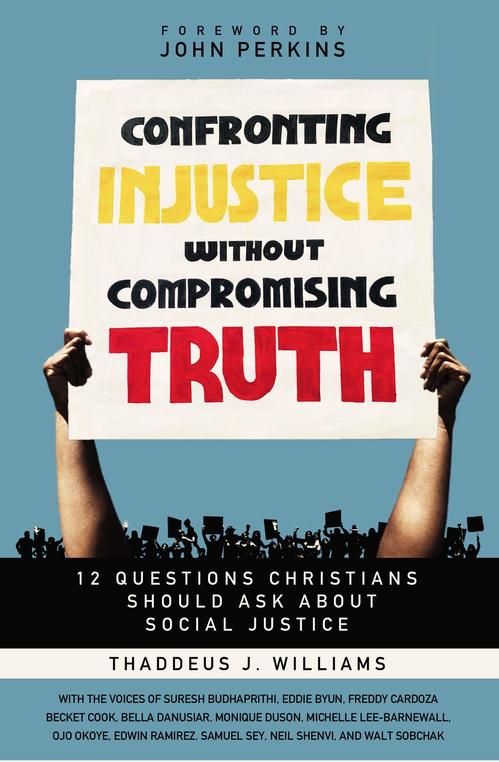
Confronting Injustice Without Compromising Truth
by Thaddeus Williams
I just finished reading a very timely book for our current cultural situation. It is by Thaddeus J. Williams, Associate Professor of Systematic Theology at Talbot School of Theology. The book is called Confronting Injustice without Compromising Truth: 12 Questions Christians Should Ask About Social Justice (Zondervan, 2020). Some of you might be turned off by the title, but it is really a sane, Biblical and helpful book about all of the current social issues our country is dealing with. Here is my review that I wrote on Goodreads.com:
No one would deny the hostility of our culture toward the Christian faith and worldview and those who hold to it. But we do not fight as the world fights, nor should their hostility justify us in making sinful responses to them. Williams book will equip and encourage you to think more Biblically about each of the hot-button issues in our culture, and to enable you to ask questions of well-meaning Christians who may have adopted some of the culture's views of social justice when it comes to race, gender, sexuality, the poor, and more. I highly recommend it!
With you seeking to do justice, love mercy, and walk humbly with my God,
- Pastor Dave
"Author Thaddeus J. Williams has written a timely, Biblical and gracious examination of the idea of social justice. Too often, Christians have the tendency to see an abuse of something and overcompensate against it (Similar to the Pharisees adding to the law in an attempt to avoid even coming close to breaking it)! Williams brings great wisdom, cultural understanding, and Biblical exegesis to helpfully define two kinds of “social justice”. Social Justice A is what the Bible calls believers to seek by both command and example. We are to seek the good of the poor, fight against injustice and racism, take care of widows and orphans. 'Social Justice B' is the variant we are seeing more frequently now, encompassing socialistic tendencies, critical race theory that undercuts the Gospel, and the redefinition of marriage, sexuality, and gender according to individual feelings. Too often in our churches, the phrase 'social justice' conjures up the idea of 'Social Justice B', with the sad result that we often ignore the legitimate call to seek 'Social Justice A'. Williams book is a great resource to think more clearly about the difference, and to consider how to respectfully and graciously engage people who sincerely hold to 'Social Justice B' convictions. Each chapter is framed by a question designed to get to the genuine expression of Biblical social justice that we cannot afford to lose in our responses to 'Social Justice B' extremes. Throughout the book, Williams does not resort to straw-men, ad hominem attacks or caricatures, instead using quotes from primary sources of 'Social Justice B', and also using helpful illustrations to make his case. He also includes personal testimonies from people who at one time were part of the 'Social Justice B' movement in different ways, and lets them explain how they saw its weaknesses and how the true Gospel brought them to a different perspective. This is a very wise, timely, and incredibly important book for our cultural moment. It is easy to read, Biblically supported, and gracious in tone. I would strongly recommend it!"
Here's a sample, after describing some of Scripture's warfare imagery and how it is sometimes used as justification for our so-called 'culture wars', he writes:
"So is Christianity a religion of war? If our enemies are the flesh and the Devil, then, yes, onward Christian soldiers! If, however, our enemy is the world, then the Bible has something else to say. First, we are commissioned not to live in a bubble like a world-phobic tribe but to go into the world to herald the good news of Jesus. Second, we don't go as chameleons absorbing into our skin any Christ-less colors of the broader culture but as nonconformists, unstained from the world, shining as lights in the midst of a crooked and twisted generation. We refuse to become slaves, victims, friends, or lovers of an oppressive system in which greedy consumption, radical self-glorification, and constant pleasure-center brain stimulation are hailed as virtues. Third, as we go, the Bible warns that the world might very well take an aggressive posture of hatred toward those who refuse to conform to its values.
When the hatred comes, should the church beat its plowshares into swords and counterattack with culture war? On the contrary, Jesus commands (not suggests) not that we retaliate or even merely tolerate but that we 'love our enemies.' Jesus prayed for the salvation of the very men hammering the spikes through his wrists and bled for us when we ourselves were warring against the Father he loves. Paul, following this radical countercultural pattern of enemy-love (and no stranger to the world's brutality himself), commands blessing to the persecutor, peaceable living with all, a ban on vengeance, food for the hungry enemy, and goodness to overcome evil. It is significant that neither Jesus nor Paul nor any Spirit-inspired author commands us to love, bless, make peace with, or feed either the Devil or the sin-drives in our own hearts.
When pondering war, therefore, the Christian must ask: Is the object of my warfare the flesh or the Devil? If yes, then fight on. If, however, the church feels assaulted by a militant culture, we need to postpone our natural fight-or-flight response long enough to ponder the unnatural command of Jesus and Paul to meet the force of hatred with the force of love. And we must pray for the supernatural infusion of love necessary to live such an impossible and countercultural command." (pgs. 208-209).
No one would deny the hostility of our culture toward the Christian faith and worldview and those who hold to it. But we do not fight as the world fights, nor should their hostility justify us in making sinful responses to them. Williams book will equip and encourage you to think more Biblically about each of the hot-button issues in our culture, and to enable you to ask questions of well-meaning Christians who may have adopted some of the culture's views of social justice when it comes to race, gender, sexuality, the poor, and more. I highly recommend it!
With you seeking to do justice, love mercy, and walk humbly with my God,
- Pastor Dave
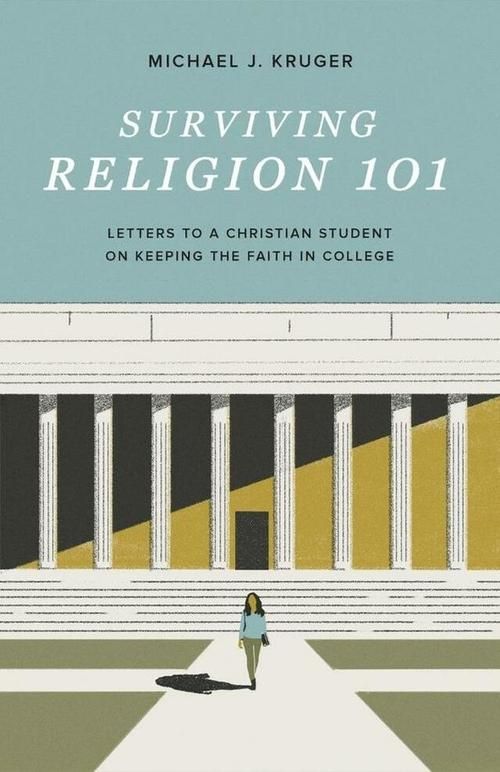
Surviving Religion 101: Letters to a Christian Student On Keeping the Faith in College
by Michael Kruger
Several of you asked the name of the Michael Kruger book I referred to in the sermon. It is called, Surviving Religion 101: Letters to a Christian Student On Keeping the Faith in College (Crossway, 2021). I think it is a very helpful, thoughtful and (of course) Biblical resource. Michael Kruger is the President of Reformed Theological Seminary, Charlotte, and has written extensively on the early church, the formation of the canon of Scripture, and the reliability of the New Testament documents. His faith was nearly swamped in his freshman year at the University of North Carolina when he took an introduction to the New Testament class taught by (now) noted Bible critic, Bart Ehrman. This challenging time led Kruger to seek out answers to the challenges to the Bible and Christianity, and eventually to pursue a Ph.D. As he puts it, "Thus, in a rather ironic turn, my experience in this university religion class set me on a new intellectual trajectory, one that eventually led me to become a New Testament scholar myself, focused on these very same historical issues." (pg. 21). In 2019, his oldest daughter headed off to UNC as well, 30 years after his encounter with Ehrman, and at the encouraging of his wife (author Melissa Kruger), he finally wrote this apologetics work to help college students (and the rest of us) know that there are answers to the challenges that the university and the unbelieving culture will hurl at us. And as I mentioned, he wrote the book in the form of a collection of "letters" to his daughter on various topics she might face in the four years to come.
In one of the first "letters", he encourages her that the challenges to our faith can actually be used by God in very positive ways! "Let all these questions drive you to pursue the answers. Be a reader. Be a studier. Be someone who dives into the deep issues of your faith. And here's the payoff: not only will that bless your own soul, but it will bless many, many other people as you help them work through challenging intellectual issues. You can become a resource for others." (pg. 34).
Being a (IMHO) great historian, Kruger also uses the example of how the early church survived by responding to attacks from without and within by working to better understand, clarify and explain the doctrines and beliefs of the Christian faith. "In short, opposition made early Christians better theologians, better defenders of the faith, and better evangelists. Such theological reflection and nuance culminated in the beautiful and unmatchable Nicene Creed of 325, where the church expressed its commitment to Christ as both God and man united in one person, over against opposing views.
But opposition to your faith will change you in another way. In addition to sharpening your mind, it will also hone your character. It will force you to trust the Lord in new and even radical ways--to lean on him and not your own understanding. It will give you a patient spirit and calmness under pressure. And most of all, it ought to give you love, compassion, and sympathy for those who don't know Christ.
Here's the big point: don't view opposition only in negative terms; view it as an opportunity to grow as a Christian, so that you might be better equipped to build up your fellow believers and reach non-Christians more effectively." (pg. 35).
Here's some of the chapter/letter titles:
"My Professors Are Really Smart--Isn't It More Likely That They're Right and I'm Wrong?"
"There Are a Lot of Different Views Here--How Can We Say That Christianity Is the Only Right Religion?"
"My Christian Morals Are Viewed as Hateful and Intolerant--Shouldn't I Be More Loving and Accepting?"
"I Have Gay Friends Who Are Kind, Wonderful, and Happy--Are We Sure That Homosexuality Is Really Wrong?"
"There Is So Much Suffering in the World--How Could a Good God Allow Such Evil?"
"Science Seems Like It Can Explain Everything in the Universe--Do We Really Need to Believe in God?"
"I'm Being Told That Ancient Scribes Changed the Words of the New Testament Thousands of Times--Is That True?"
"My Professor Says That Books Were Left Out of Our Bibles--Can We Be Sure We Have the Right Ones?"
Let me conclude with this encouragement from Kruger on doubt:
So, I would encourage you to grab a copy for yourself and/or for the college student that you know and love. It is an easy to understand work, but with great learning behind it.
With you seeking to keep the faith, and question my doubts,
-Pastor Dave
In one of the first "letters", he encourages her that the challenges to our faith can actually be used by God in very positive ways! "Let all these questions drive you to pursue the answers. Be a reader. Be a studier. Be someone who dives into the deep issues of your faith. And here's the payoff: not only will that bless your own soul, but it will bless many, many other people as you help them work through challenging intellectual issues. You can become a resource for others." (pg. 34).
Being a (IMHO) great historian, Kruger also uses the example of how the early church survived by responding to attacks from without and within by working to better understand, clarify and explain the doctrines and beliefs of the Christian faith. "In short, opposition made early Christians better theologians, better defenders of the faith, and better evangelists. Such theological reflection and nuance culminated in the beautiful and unmatchable Nicene Creed of 325, where the church expressed its commitment to Christ as both God and man united in one person, over against opposing views.
But opposition to your faith will change you in another way. In addition to sharpening your mind, it will also hone your character. It will force you to trust the Lord in new and even radical ways--to lean on him and not your own understanding. It will give you a patient spirit and calmness under pressure. And most of all, it ought to give you love, compassion, and sympathy for those who don't know Christ.
Here's the big point: don't view opposition only in negative terms; view it as an opportunity to grow as a Christian, so that you might be better equipped to build up your fellow believers and reach non-Christians more effectively." (pg. 35).
Here's some of the chapter/letter titles:
"My Professors Are Really Smart--Isn't It More Likely That They're Right and I'm Wrong?"
"There Are a Lot of Different Views Here--How Can We Say That Christianity Is the Only Right Religion?"
"My Christian Morals Are Viewed as Hateful and Intolerant--Shouldn't I Be More Loving and Accepting?"
"I Have Gay Friends Who Are Kind, Wonderful, and Happy--Are We Sure That Homosexuality Is Really Wrong?"
"There Is So Much Suffering in the World--How Could a Good God Allow Such Evil?"
"Science Seems Like It Can Explain Everything in the Universe--Do We Really Need to Believe in God?"
"I'm Being Told That Ancient Scribes Changed the Words of the New Testament Thousands of Times--Is That True?"
"My Professor Says That Books Were Left Out of Our Bibles--Can We Be Sure We Have the Right Ones?"
Let me conclude with this encouragement from Kruger on doubt:
"Doubt is not the same as unbelief. Unfortunately, many Christians equate the two, which is why they feel so guilty about their doubts. They assume it means that they are rebels--people who just stubbornly refuse to believe God. But this misconception needs to be done away with once and for all. Doubt is not the same thing as being an unbeliever.
What then is doubt? Os Guinness offers a helpful definition: 'Doubt is a state of mind in suspension between faith and unbelief so that it is neither of them wholly and it is each only partly.' In other words, doubt is a form of wavering; it's to be of 'two minds' about something.
While doubt is not the same as unbelief, it may lead to unbelief if left unchecked. Thus, the Scriptures consistently call us away from doubt and toward our faith.....In short, doubt can be a hindrance to our faith. Indeed, it can be quite serious. But it is not the same as a lack of faith. And God is very patient with those who struggle with doubts. Jesus himself was very longsuffering with the doubts of the disciples, even showing great patience with Thomas, who insisted that he would not believe until he put his hands in Jesus's side (John 20:27)." (pg. 220).
So, I would encourage you to grab a copy for yourself and/or for the college student that you know and love. It is an easy to understand work, but with great learning behind it.
Here's a PDF sample of the cover and first chapter: Surviving Religion Excerpt
Surviving Religion 101 lists for $16.99, but you can get it at 10ofThose.com for only $11.89 (and their shipping is always only $1.00). Here's the link: 10ofThose
With you seeking to keep the faith, and question my doubts,
-Pastor Dave

